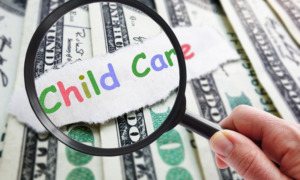The At-Risk Youth Industry
Atlantic Monthly
The emerging industry of companies contracted to manage billion-dollar services like special education and juvenile justice has not proven its worth. Prophecies that contracted services would provide efficiency and low costs have not been fulfilled, and there has been little benefit to kids. December 2002. www.theatlantic.com/issues/2002/12/press.htm.
Youth Drug Court Lacks Enrollees
St. Petersburg Times
After searching for months, Citrus County, Fla., officials could only find two people eligible to participate in a juvenile drug court program funded with a $400,000 grant from the U.S. Justice Department. The failure is partly due to restrictions on who is allowed into the program. Jan. 20. www.sptimes.com; search for “youth drug court.”
Cradle for Two
Salt Lake Tribune
This eight-part series examines pregnant teen girls and teen mothers at the YWCA’s Lolie Eccles Teen Home in Salt Lake City. Despite health services, counseling and parenting classes provided by the home, many of the teens struggle to turn their lives around. Jan. 26. www.sltrib.com/2003/Jan/01262003/utah/23501.asp.
Cattlemen Target Teen Vegetarians
Des Moines Register
Recent surveys show that one in four teens consider vegetarianism to be “cool,” and a growing number of adolescents do not eat any or certain meats. The trends have prompted the marketing departments of the nation’s meat producers to begin pro-meat campaigns, targeted particularly at female teenagers. Jan. 27. http://desmoinesregister.com/life/stories/c4788996/20329263.html.
At 18, Mental Patients Face Perilous Change
Boston Globe
When they turn 18, mental health patients lose access to a range of state services and are granted rights to keep medical information from immediate family and decline medical treatment. Health system analysts say that at this age, patients often take a disastrous turn toward homelessness, criminal behavior and a revolving-door cycle of crisis, hospitalization and release. Feb. 3. www.boston.com; search for “mental patients face perilous change.”
Cruelest Choice Faces Parents of Mentally Ill
New York Times
A look at parents who, because of soaring health care costs, have given custody of their mentally ill children to welfare agencies so that the children can get mental health care. Thirteen states have passed laws against exchanging custody for care. Feb. 16. www.nytimes.com; search for “Cruelest choice.”
Newark Boy’s Death Reveals Failed Promise to Mend Child Welfare System
New York Times
The February funeral of Faheem Williams, a seven-year-old whose malnourished body was found in a relative’s home, marks a painful reminder that New Jersey’s 5-year-old promises to improve its system for abused children remain largely unfulfilled. Vows to follow recommendations of a governor-appointed panel to revamp the system have largely gone unsupported. Feb. 7. www.nytimes.com; search for “Newark boy’s death.”
Lost Generation
Des Moines Register
The number of children taken from parents who cannot or will not care for them has grown since Congress enacted new child-welfare laws in 1997. Officials are quicker to terminate parental rights, and the cost to taxpayers has risen every year, while little has been done to reduce the need for expensive foster care. Proponents say that finding safe and stable permanent homes for the children justifies the costs. Feb. 9. http://desmoinesregister.com/news/stories/c4780934/20448298.html.
Wolfpack: The Press and the Central Park Jogger
Columbia Journalism Review
Thirteen years after five Harlem teens were arrested and jailed for the beating and rape of a female jogger in Central Park, a 31-year-old incarcerated serial rapist has confessed to the crime. The revelation has left reporters questioning their own role in the debacle and pondering their distrust of minority teenagers. Jan. 13. http://cjr.org/%20year/03/1/hancock.asp.
Compiled from news reports, the Casey Journalism Center for Children and Families, and Connect for Kids.

























